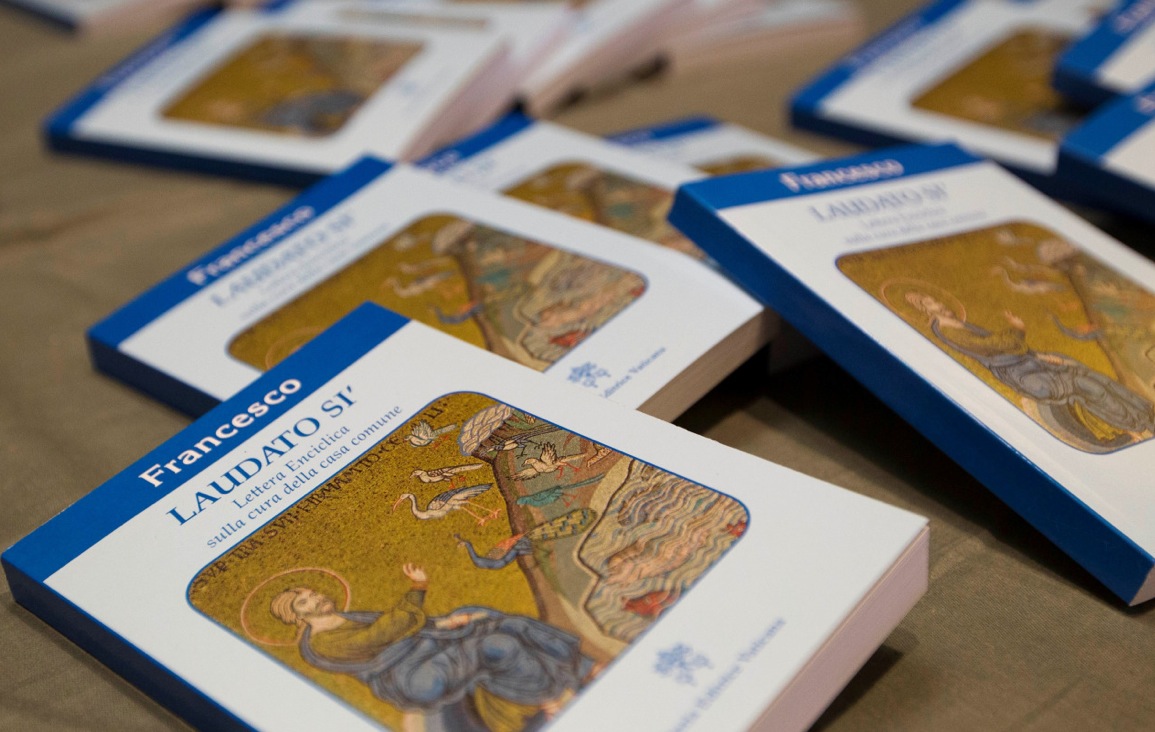Esta entrada también está disponible en: Spanish
see opinion published in the Voz del Interior (in Spanish): http://www.lavoz.com.ar/ciudadanos/argentina-y-la-enciclica-papal
ARGENTINA in the Context of the Pope’s Encylical
by Romina Picolotti
“ … human life is grounded in three fundamental and closely intertwined relationships: with God, with our neighbour and with the earth itself. … these three vital relationships have been broken, both outwardly and within us. This rupture is sin.”
from the Laudato Si Encyclical on Care for Our Common Home. Pope Francis
Once again, Pope Francis surprises the world. When nations are debating the road to address our climate crisis, Pope Francis sends us a clear and firm message. The climate crisis is a work of man and we urgently need to take concrete actions to avoid irreversible damage. His message is to all of us, to believers and non-believers, political leaders, business and to common people.
As I read through the Papal Encyclical on the environment, I asked myself what does this mean in the context of Argentina? What would life be like in a country like Argentina if the nation were to follow the papal encyclical? A reflection of this type is not merely a chauvinistic exercise. On the contrary, it responds to the urgent need of Argentine society and Argentine people as one of the richest countries in natural resources and a country where 95% of the population is baptized under the Catholic faith.
In his Encyclical, Pope Francis underlines the importance of protection water, forests, and glaciers. He stresses the importance of tending to our waste and promoting agriculture that is respectful of the planet. Living by the papal encyclical would imply, for example, responsibly and integrally managing water resources, protecting glaciers by applying the glacier law, cleaning the Matanza Riachuelo River Basin, and firmly advancing in the management of Argentina’s largest inland basin, the Salí Dulce.
Pope Francis observes, “ … countries that possess clear legislation to protect forests continue to witness the frequent violations of the law.” To live by the encyclical in Argentina, would mean the application of the native forests protection law, sanctioning indiscriminate deforestation and the abusive use of agrochemicals in agriculture, it would mean promoting sustainable agriculture, avoiding desertification of lands, promoting renewable energies and rejecting the false utopia of fracking fossil fuels.
At the provincial level, it would mean cleaning polluted lakes and protecting forests. In cities it would mean cleaning the air, organizing traffic and transport, and planning for more sustainable growth of cities making cities accessible to all. It would also mean more sustainably managing municipal solid waste.
Pope Francis encourages us to ask ourselves, “What is the purpose of our life in this world? Why are we here? What is the goal of our work and all our efforts? What need does the earth have of us? It is no longer enough, then, simply to state that we should be concerned for future generations. … We need to see that what is at stake is our own dignity. Leaving an inhabitable planet to future generations is, first and foremost, up to us. The issue is one which dramatically affects us, for it has to do with the ultimate meaning of our earthly sojourn.”
Living in this nation guided by the words of Pope Francis implies waking each day to the realization that our actions must contribute to harmonize our relationship with the Earth.
“There can be no renewal of our relationship with nature without a renewal of humanity itself”
In each of us, we can find a renewal of humanity.

